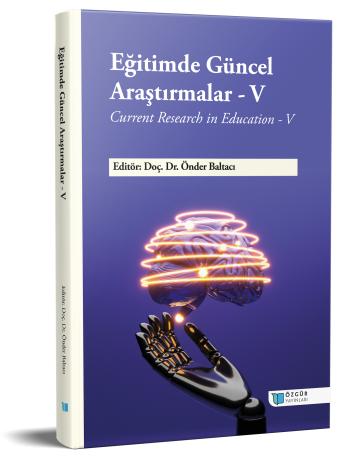
Models of Learning in Language Teaching
Şu kitabın bölümü:
Baltacı,
Ö.
(ed.)
2023.
Eğitimde Güncel Araştırmalar - V.
Özet
Language is the most crucial component of lifelong learning and development in the information age we live in. Every person can execute tasks like reading, writing, understanding, asking questions, thinking, and solving problems because of language. Language is the primary instrument of mental, emotional, and social growth. Language has a crucial role in a variety of functions, including conveying culture, engaging, expressing emotions and thoughts, and communicating. Examining various approaches and models used in the language learning process is part of the idea of "learning models" in language teaching. A range of techniques are employed to enhance pupils' language proficiency using language learning models. These models incorporate variables and pedagogical practices that impact language acquisition. The foundational subject in language instruction, Turkish, is a flexible course that fosters language proficiency, increases awareness of the student's home tongue, and has tight connections to other courses. This characteristic has made adopting a wide range of approaches and strategies in classroom applications crucial. It will be more effective to use a variety of methods rather than a single method or technique in the curriculum when the methods and techniques used to achieve educational goals are essential. This will help students learn their native language and develop language awareness when teaching languages. The approach taken and the exercises conducted when instructing students in the curriculum's units and chosen subjects are crucial in determining whether or not children exhibit the anticipated behavioral changes and, consequently, in meeting learning objectives. To assist students in achieving their objectives in both in-class and extracurricular education and training activities, teachers must develop and put into practice strategies, tactics, and activities. The pursuit of understanding which circumstances best facilitate learning has led educators to develop new approaches to teaching and learning. Throughout history, every learning model has either supported or challenged the development of the other learning model. Different learning models have been discovered as a result of the quest for answers to issues like what makes learning successful, which factors are more active, and under what circumstances education fulfills its purpose. This study covers a variety of modern learning models and explains their role and significance in teaching Turkish and other languages. These models include constructivist learning, brain-based learning, active learning, cooperative learning, project-based learning, multiple intelligence learning, and mastery learning.

